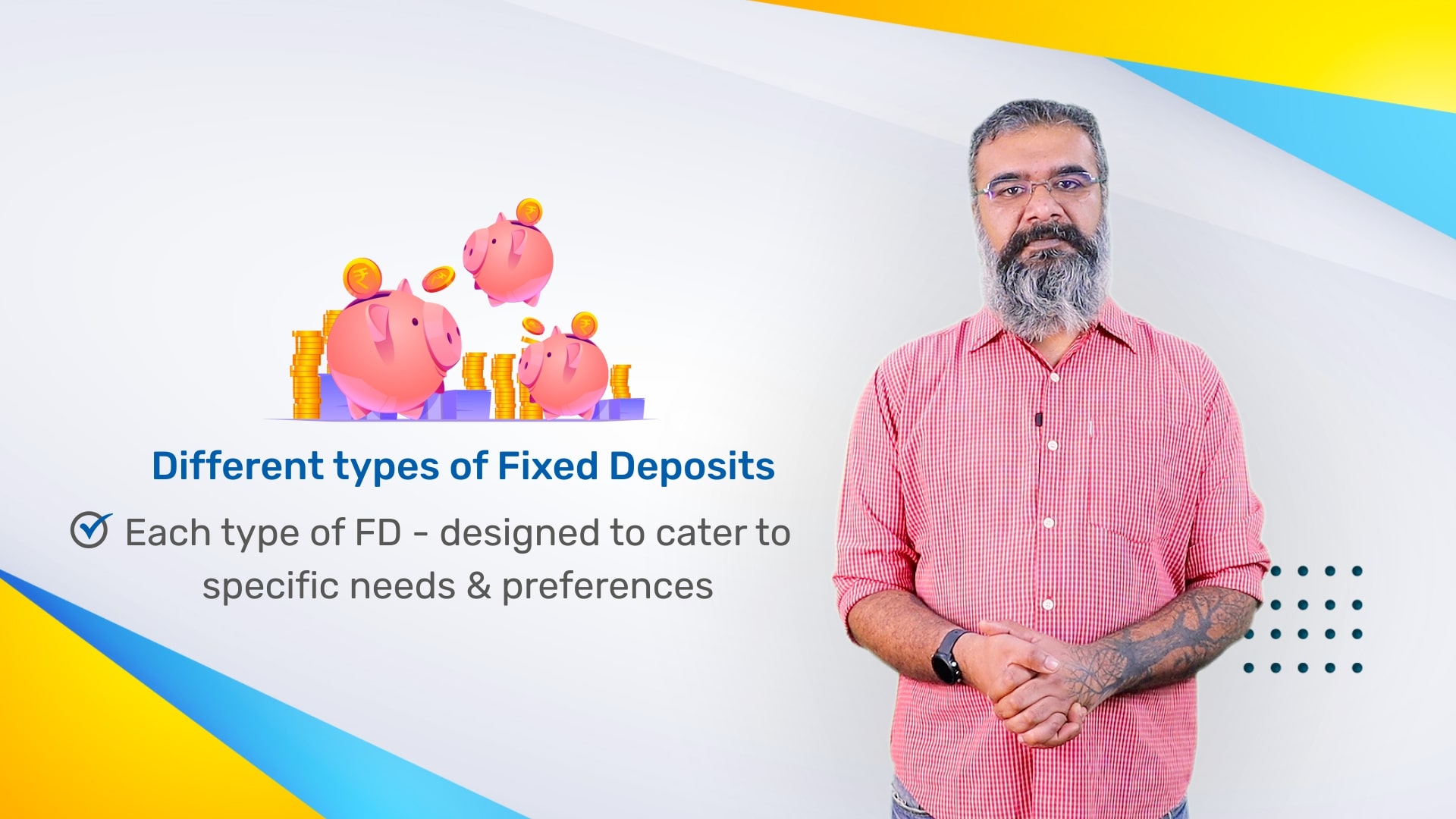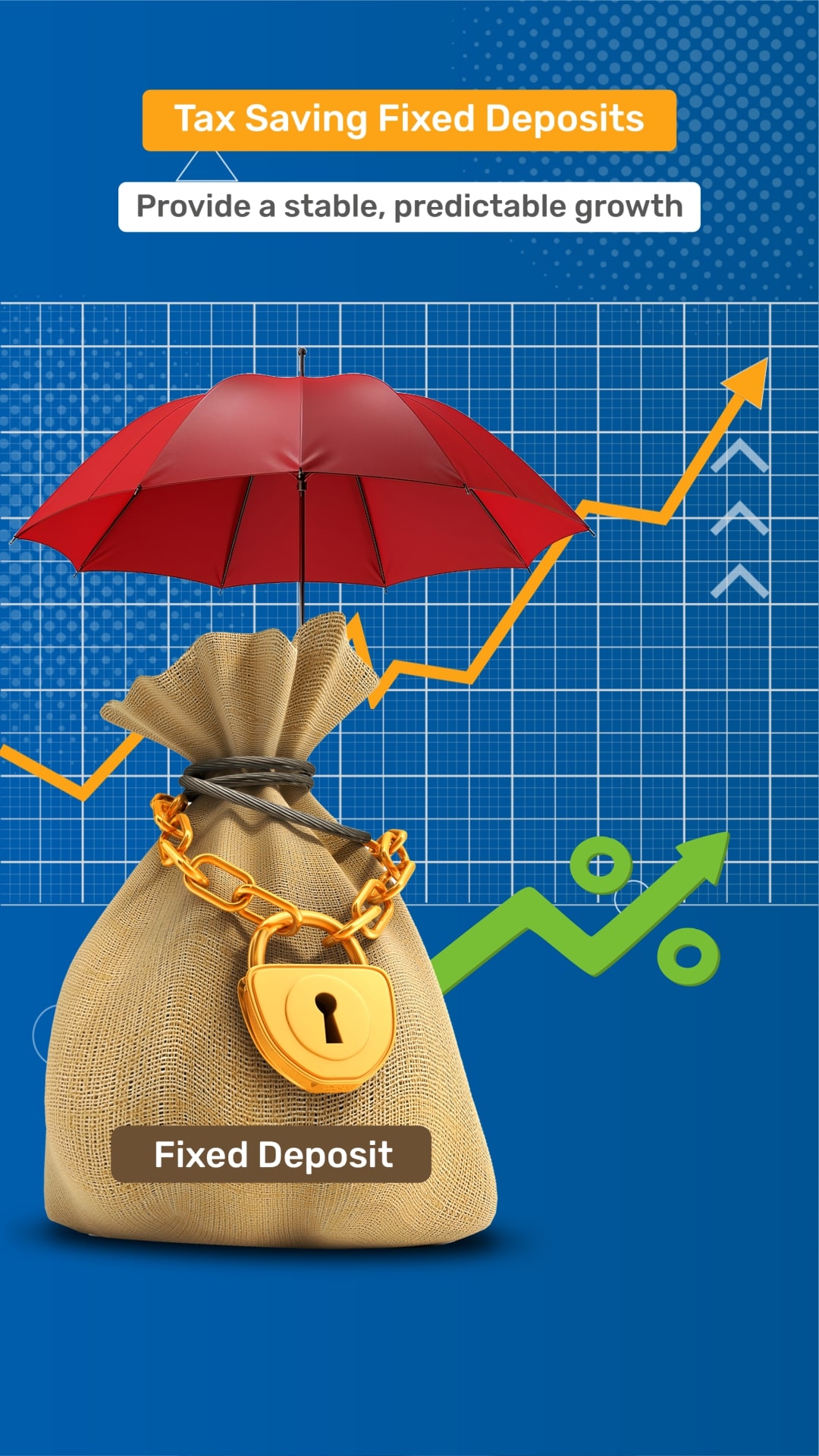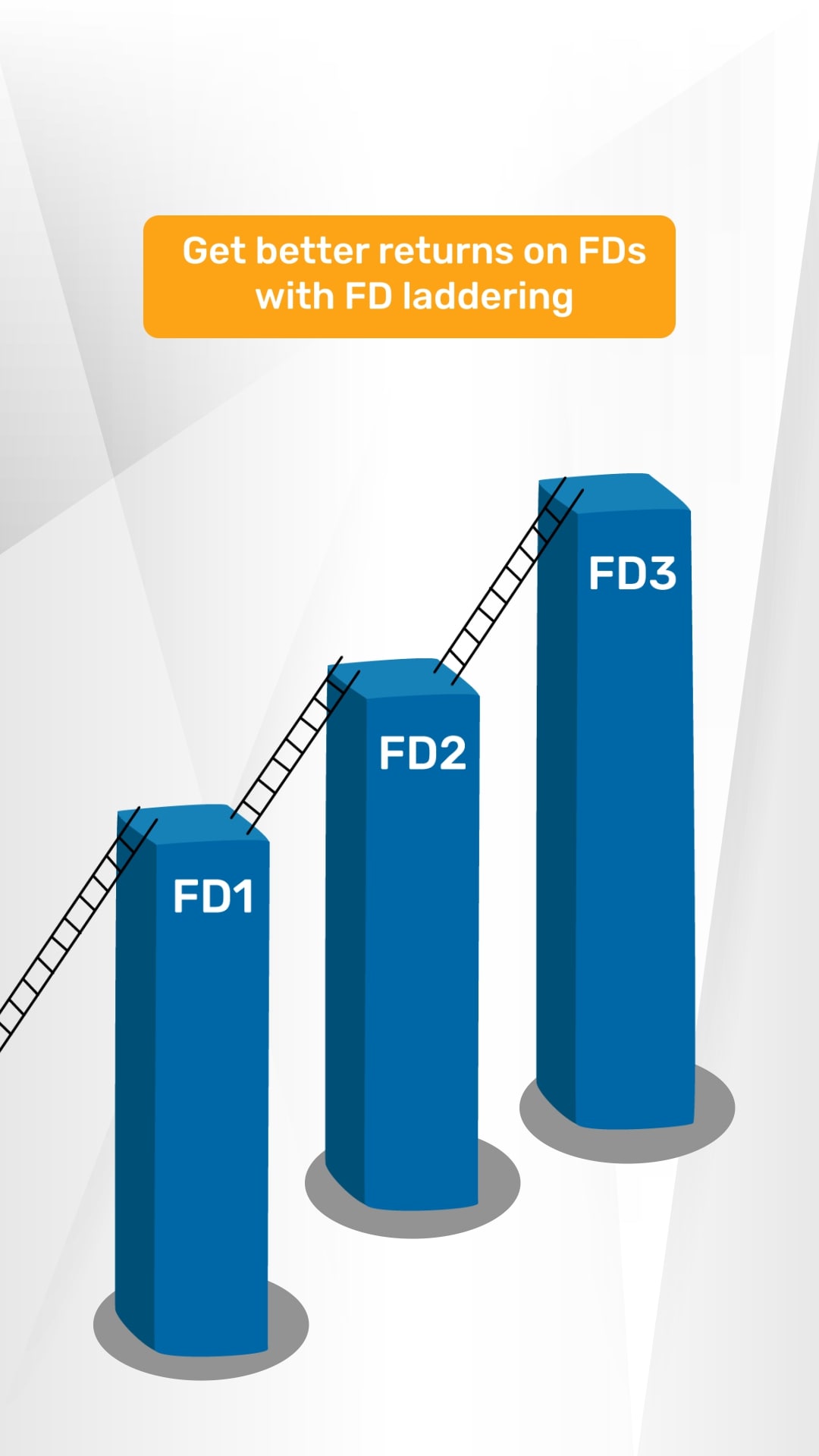Exploring The Different Types of Fixed Deposits
Fixed Deposits come in a variety of types, each designed to meet different financial needs and preferences. In this video, we’ll dive into the different types of Fixed Deposits, helping you understand how each type works. From Standard Fixed Deposits to specialised options, FDs offer diverse choices based on individual needs.
We’ll start with the Standard FD, which allows you to invest a lump sum for a set tenure at a fixed interest rate. Tax-saving FDs, on the other hand, come with a five-year lock-in period and may allow for deductions under Section 80C under the IT Act. For senior citizens, higher interest rates and TDS benefits may make Senior Citizen FDs a popular choice.
We’ll also cover options for NRIs, including NRE and NRO FDs, which cater to differing tax and currency needs. Recurring FDs could provide a way to save monthly, while Flexi FDs link to savings accounts for liquidity. Corporate and Special FDs might offer higher returns with varying risk levels, while Floating FDs adjust rates with the market.
Gaining insights into how each FD type could support different financial priorities might help you find the right FD for your investment strategy.

Key Takeaways
Standard FDs allow for a one-time investment with flexible terms from 7 days to 10 years, where returns could depend on the chosen duration
Tax-Saving FDs require a 5-year lock-in and might offer tax deductions under Section 80C, though early withdrawals aren’t allowed
Senior Citizens FDs could provide enhanced interest rates for those aged 60 and above, along with a TDS exemption of up to Rs. 50,000
NRI FDs offer two options: NRE accounts with tax-free interest and NRO accounts with taxable returns at 30%, depending on your financial goals
Recurring FDs enable consistent monthly deposits over terms from 12 to 60 months, which might be ideal to gradually build savings with regular income
Flexi Deposits link to a savings account, automatically converting excess funds into FDs, which could help you balance growth with liquidity
Corporate FDs might offer higher returns but come with increased risk as they are issued by companies
Special FDs provide potentially higher returns over specific durations that could be appealing if you aim to maximise gains within a set timeframe
Floating FDs have variable interest rates that could adjust quarterly or yearly, allowing you to benefit from favourable market conditions
What to Watch Next
Bites
































